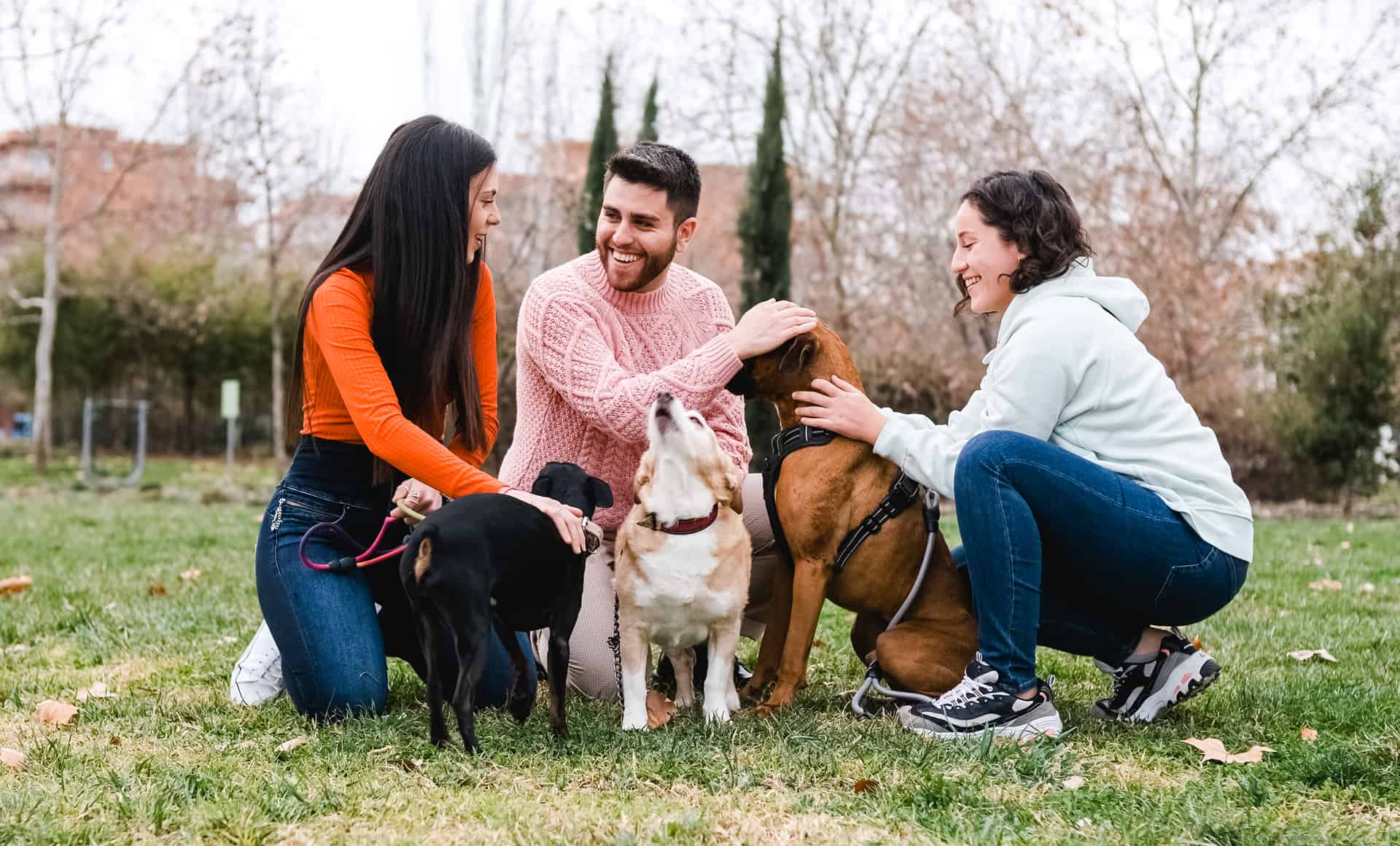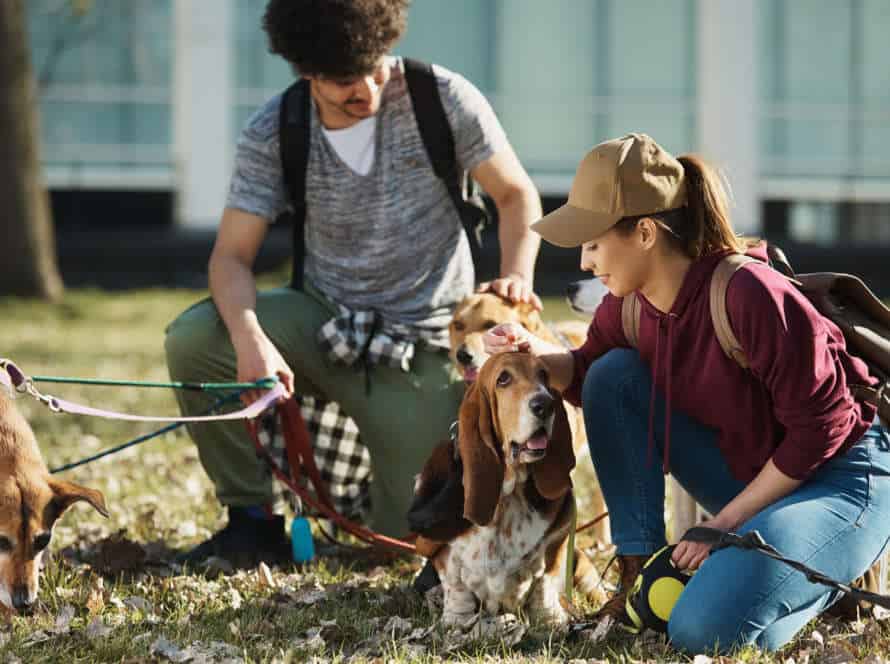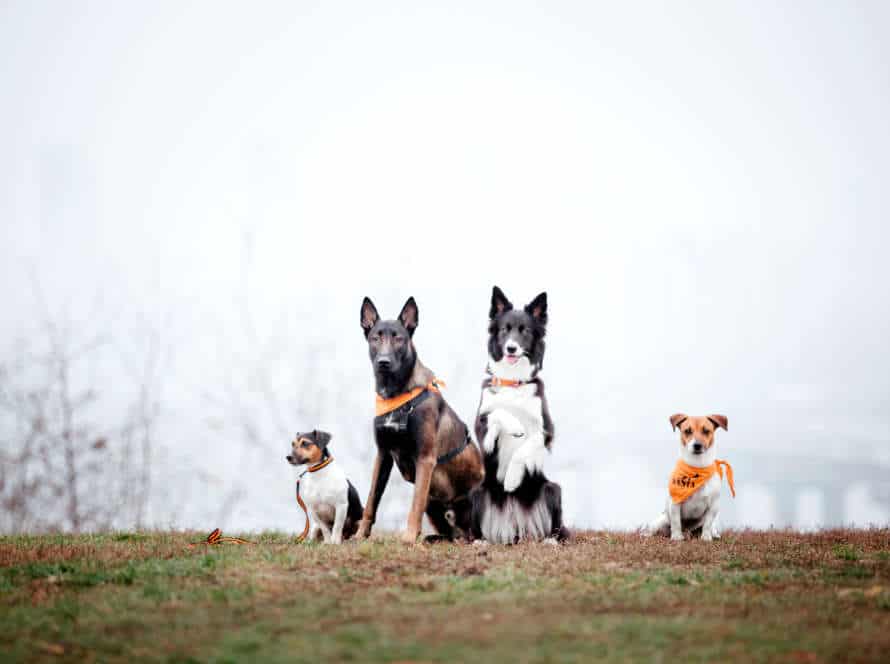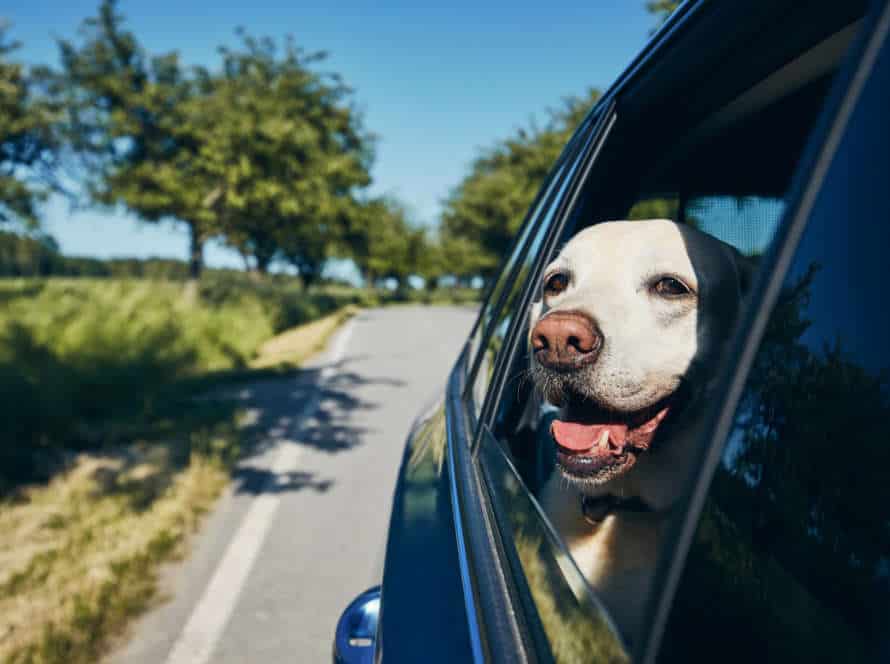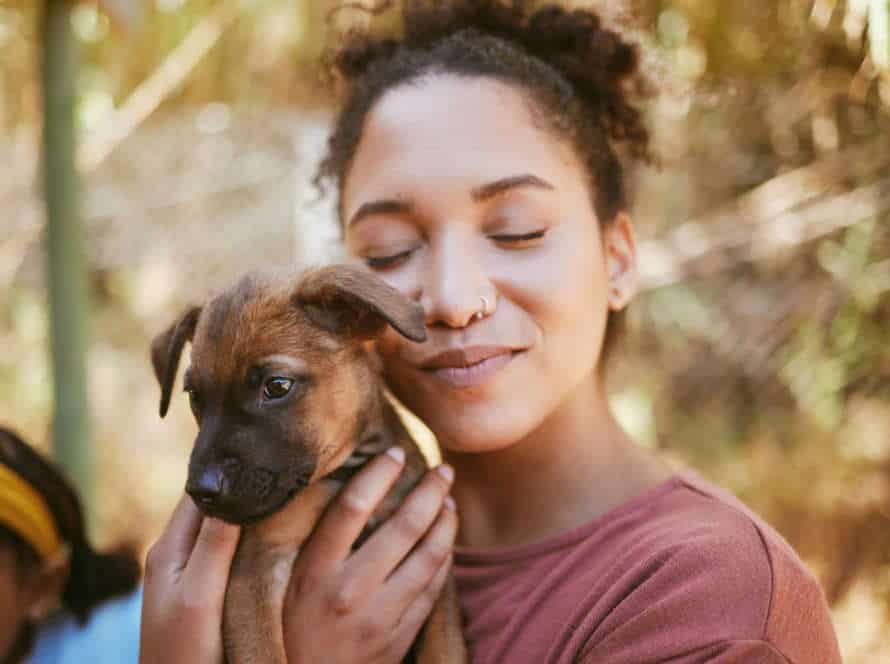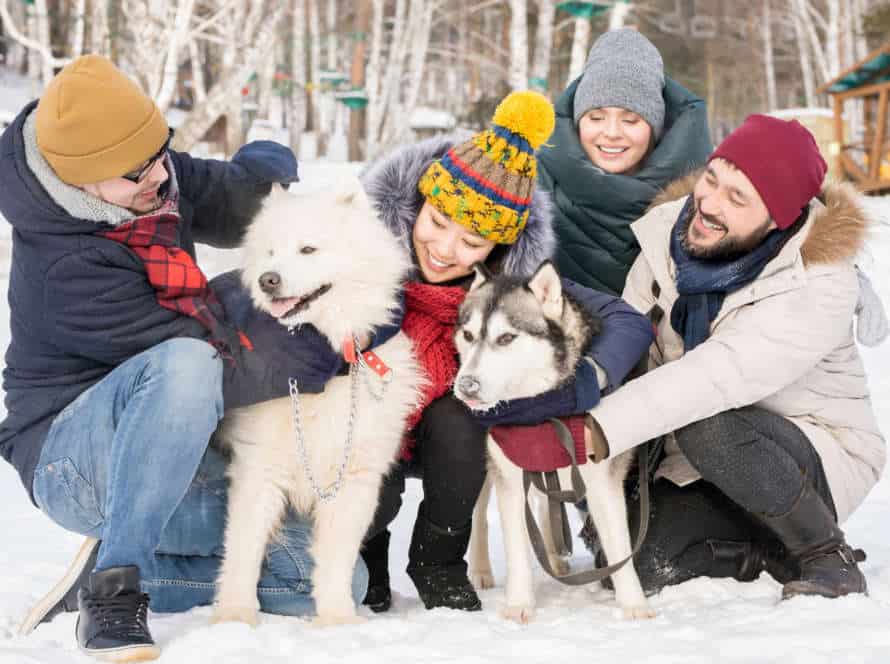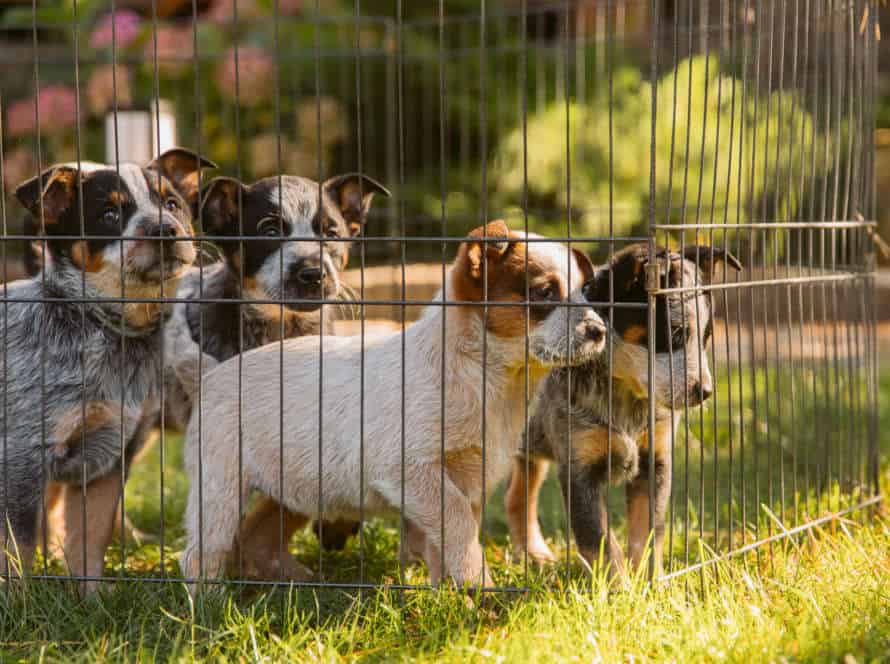Senior Dog Weight Management
Dogs get older and their metabolism slows down. This can lead to them becoming overweight. Luckily, there are ways to help manage your senior dog’s weight. Diet and exercise can help keep them fit and healthy. What are the options? Let’s find out!
Understanding senior dog nutritional needs
As dogs age, their food needs differ. It’s vital to alter their eating plan to keep them healthy and content. Here’s what you should know:
- Senior dogs require fewer calories than younger ones to sustain their weight and dodge obesity-related health concerns. Feed your senior dog a diet with fewer calories but more protein and fiber, so they feel full without gaining too much weight.
- Search for food specifically recommended for senior dogs, as it has vitamins, minerals, and substances aging dogs need.
- Plus, older dogs tend to drink less water, which can cause dehydration. Make sure your pup has fresh water readily available.
- Pro tip: Ask your vet to find out your senior dog’s exact nutritional needs and customize their diet accordingly. Good weight management and regular exercise will help your senior dog stay happy and healthy for as long as possible.
Identifying signs of weight gain or loss
Keep an eye on your senior pup’s weight. It is key to their health and happiness! Some signs of weight gain or loss to look out for:
Weight Gain Signs:
- Becoming tired easily when playing or exercising.
- Eating more than usual.
- Panting and having difficulty breathing or moving.
- Limping or waddling.
- Excessive gas or bloating.
Weight Loss Signs:
- Eating less than normal.
- Low energy or being lethargic.
- Ribs and muscles visible.
- Coat looking dull or unkempt.
- Dehydration and eyes looking sunken.
Monitoring your pup’s weight is important. Balance their diet and give them regular exercise to keep them happy and healthy!
Calculating the ideal weight for your senior dog
Managing weight and exercise for senior dogs is super important for their health and happiness. Calculating the ideal weight for your pup will help you plan for maintaining their weight and nutrition. Here’s how:
- Learn your dog’s breed, age, and health status – that’ll give you a good starting point.
- Use a dog weight chart to estimate the ideal weight for their breed and size.
- Ask your vet – they can help you decide a healthy weight range and recommend a diet and exercise plan.
Remember every dog is different and you may need to make adjustments to their diet and exercise routine based on their individual needs. Managing their weight will help your pup live longer and healthier!
Exercise for Senior Dogs
Exercising an elderly pup can be a great way to keep the weight off and look after their joints. Ask your vet first – then think of a plan for exercising your senior pup. Here are some details to think of when exercising your pooch!
Benefits of exercise for senior dogs
As our furry friends age, their physical abilities decline and they can become vulnerable to various health issues. Regular exercise is essential for senior dogs to avoid obesity, arthritis, and other age-related diseases. It will also benefit their mental wellbeing, reduce stress, and promote better sleep. Here are the main advantages of exercising senior dogs:
- Weight management: Exercise helps them maintain a healthy weight and prevents other common health issues such as heart disease, diabetes, and joint pain.
- Improved mobility: Regular exercise increases flexibility and muscle strength, improving mobility and minimizing pain.
- Better mental health: Exercise prevents anxiety, depression, and boredom in senior dogs, reducing stress and improving their mood.
- Healthy heart: It promotes a healthy cardiovascular system, improving blood circulation and oxygenation of organs.
- Managing chronic diseases: Exercise can manage chronic health problems like arthritis and diabetes, reducing their symptoms and enhancing their quality of life.
Remember to go slow and be patient with your senior dog’s exercise routine. Pro Tip: Talk to your vet before starting any exercise routine for your senior dog, and choose activities that suit their physical abilities and interests.
Types of exercises suitable for senior dogs
As pups’ years increase, their movement decreases, and their exercise needs change. Here are some low-impact workouts that work well for older dogs:
- Short Walks: Take short, regular strolls to keep senior pooches going and improve joint mobility. Keep it slow and let your pup decide when the walk is over.
- Gentle Swimming: Swimming is a great exercise for senior doggos with joint issues or arthritis. It helps their heart and muscles stay strong.
- Training Exercises: Train them on “stay,” “come,” and “heel” to keep their brain active and give them a reasonable workout.
- Interactive Toys: Puzzle feeders and hide-and-seek games keep senior pups mentally and physically active without straining their joints too much.
Before starting any exercise for your aged pup, make sure to ask your veterinarian for advice to avoid any injuries.
Creating an exercise routine for your senior dog
As our pup grows old, it’s important to set up a regular exercise plan that matches their capability. Here’s how to create an exercise program for your senile dog to help manage their weight and stay fit.
Discover what exercise is best for your pup based on age, breed, and health.
Do low-impact activities such as short strolls, calm hikes, or swimming to avoid stressing out their bones.
Include strength and balance training using simple exercises such as sit-to-stand or standing on three legs to help improve their agility.
Check on your pup’s progress and adjust the program if needed to keep them safe and comfortable.
Don’t forget to give them rest time and provide water to keep them hydrated during the workouts.
Diet and Nutrition for Senior Dogs
Tailor your senior pup’s diet to their individual needs! Protein-rich and low-fat meals are essential. Plus, vitamins, minerals, and nutrients must be included. To keep your pup healthy and active, managing their weight and exercise is key. Read further to learn how to give them the best nutrition and exercise!
Choosing an appropriate senior dog food
It’s key to pick the right senior dog food for your beloved pet. Here are factors to bear in mind:
- Age & Health: Senior canines have distinctive diet needs than pups, and their nourishment requirements may vary with their health issues. A senior dog food should have quality proteins, beneficial fats, and fewer calories.
- Ingredients: Check for food that has real meat as the main ingredient, no stuffers or artificial additives. Stay away from elements your dog may be sensitive to.
- Quality: Choose top-notch dog food brands known for good quality and safety.
- Talk to your vet about what senior food is right for your pup, depending on their age, activity, weight, and health. Exercise and maintain a healthy weight are also essential for your senior’s overall health.
Pro tip – Always check the ingredient list on the dog food package, and pick one that meets your senior dog’s nutritional needs based on their age, activity, weight, and health requirements.
Understanding senior dog digestive changes
As your pup gets older, their digestion requires different food and nutrition. It’s necessary to watch their weight and activity for their health. Here’s some common digestive changes:
- Appetite decline: Elderly pups generally have less smell and taste, which reduces their appetite. You may need to test different foods and switch up meal times to get them eating again.
- Digestive issues: Older dogs may suffer from constipation or diarrhea due to less movement. Gradually introducing new foods and drinking more water can help.
- Dental problems: Aging dogs can get tooth decay and gum disease, hindering their ability to chew. Soft foods and chew toys can provide relief.
Apart from dietary changes, managing their weight with proper nutrition and exercise is important to avoid health issues such as diabetes, arthritis, and heart disease. Provide low-impact exercises and check their weight regularly for their well-being. Don’t forget to make their old age comfortable and happy, and make sure their needs are met, as each senior dog’s health is unique.
Implementing a feeding schedule for senior dogs
For your senior pup’s health, it’s essential to have a feeding schedule. Here’s how to set one up:
- Calculate the daily calorie allowance for their age and weight.
- Split the total into 2-3 meals across the day.
- Get high-quality senior dog food that meets their needs and lowers the risk of obesity, diabetes, or heart disease.
- Ask your vet before adding supplements or fresh ingredients like fruits, veggies, or lean fats.
- Adapt the schedule and portions to their lifestyle, exercise, and appetite.
Pro Tip: Offer lots of fresh water and don’t overfeed them treats or table scraps. This can cause stomach issues and mess up their diet.
Monitoring Senior Dog Health
Aging dogs need more care. For seniors, weight and exercise are key. Maintaining a healthy size and doing age-suitable exercise can keep them healthy. Let’s see why managing weight and exercise for senior dogs is so important.
Regular vet check-ups for senior dogs
Vet check-ups for senior dogs are a must! They help to monitor health, manage weight, and give those golden years some extra joy. As dogs age, they become more prone to diseases like arthritis, dental issues, and cancer.
Annual check-ups with a vet can assess general health, do routine tests, and detect potential health issues.
Managing weight and exercise is important for overall well-being. Obesity worsens arthritis and heart disease, while lack of exercise leads to muscle and joint stiffness. Your vet can recommend the right diet and exercise regime based on health condition and weight.
Pro Tip: Regular check-ups and communication with your vet about your senior dog’s health can detect and manage health issues early, leading to a longer and happier life!
Understanding and managing chronic conditions
Senior dogs can suffer from various chronic conditions, such as arthritis, diabetes, heart disease and cancer. So, it’s essential for their caretakers to keep an eye on their health and provide the necessary care to manage these conditions. Here are some tips:
- Regular vet visits: Have regular check-ups with your vet to monitor the health of your senior dog and detect any signs of chronic conditions.
- Weight management: Obesity can worsen chronic conditions, so make sure your senior dog is at a healthy weight. Feed them a balanced diet and limit treats.
- Exercise: Regular, low-impact exercise can help manage chronic conditions and maintain your senior dog’s overall health. Get them out for daily walks or swimming.
- Medication and treatment: Follow your vet’s advice for medication, treatment and management of chronic conditions. Be consistent and vigilant with medications and treatments.
With the right attention and care, senior dogs with chronic conditions can still lead happy and healthy lives.
Identifying changes in behavior or mobility in senior dogs
As dogs age, they may act and move differently. This can mean something is wrong, so don’t ignore it. Here are some signs to watch:
- Less appetite or weight loss
- Tiredness or more sleep
- Struggling with walking, stairs, or standing
- Not able to control their bladder or bowel
- Panting or coughing too much
- Unexpectedly aggressive or changes in mood
To take care of your senior pup, make sure they eat healthy, get activity that fits their age and body, and go to the vet often. Their diet needs to be special for them, and exercise should match their age and movement. Vet visits can find any health issues before they get worse.
Frequently Asked Questions
Q: How much exercise does my senior dog need?
A: The amount of exercise your senior dog needs depends on their individual health and fitness level. However, most dogs require regular walks or light exercise for at least 30 minutes a day.
Q: What type of exercises are best for senior dogs?
A: Low-impact exercises such as gentle walks, swimming, and light playtime are best for senior dogs. Make sure to avoid high-impact activities that could cause injury or strain.
Q: What kind of diet should I give my senior dog?
A: Senior dogs require a high-quality, low-calorie diet that ensures they get all the nutrients they need to maintain muscle mass and overall health. Consult with your veterinarian to determine the best diet for your senior dog.
Q: How do I know if my senior dog is overweight?
A: You can assess your senior dog’s weight by looking and feeling for excess fat, especially around their ribs and abdomen. Your veterinarian can also help you determine if your dog is overweight and provide suggestions for managing their weight.
Q: How often should I take my senior dog to the vet?
A: Senior dogs should see a veterinarian at least every 6 months for routine checkups and assessments. Regular visits can help detect potential health problems early and ensure your senior dog stays healthy.
Q: Can I still exercise my senior dog if they have health problems?
A: It depends on the specific health problem. Some health conditions may require modifications to exercise routines, while others may make exercise off-limits altogether. Consult with your veterinarian to determine the best exercise plan for your senior dog.

